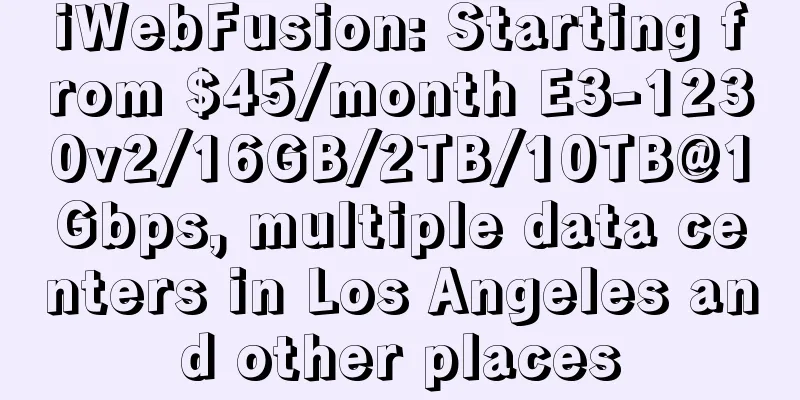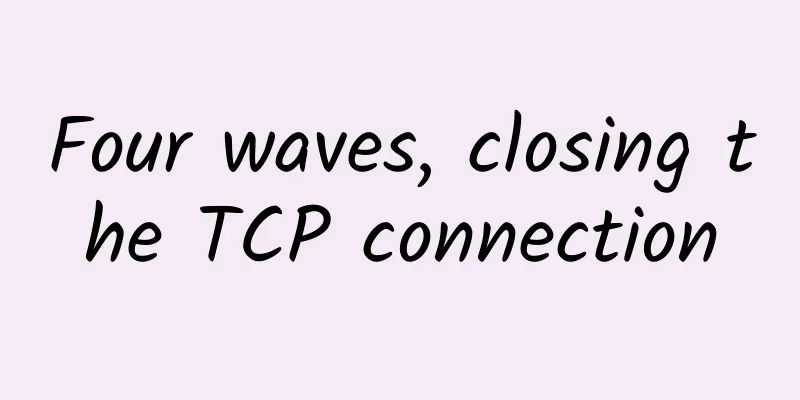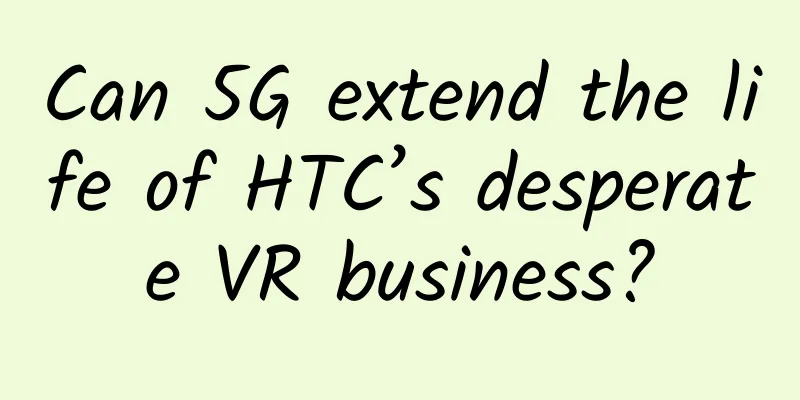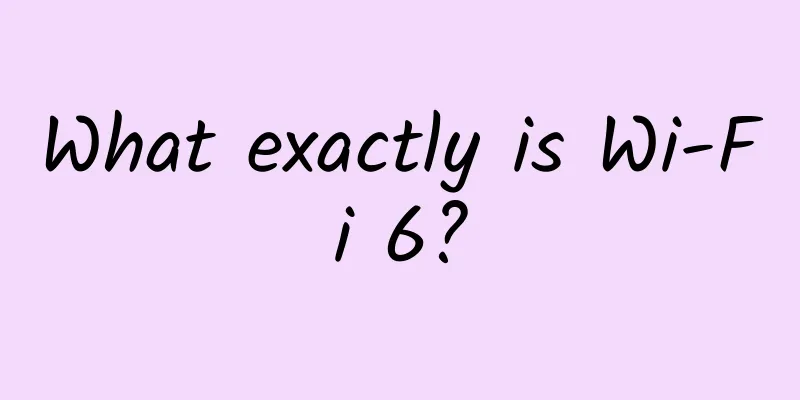What do I think Web3 is? Let me tell you!
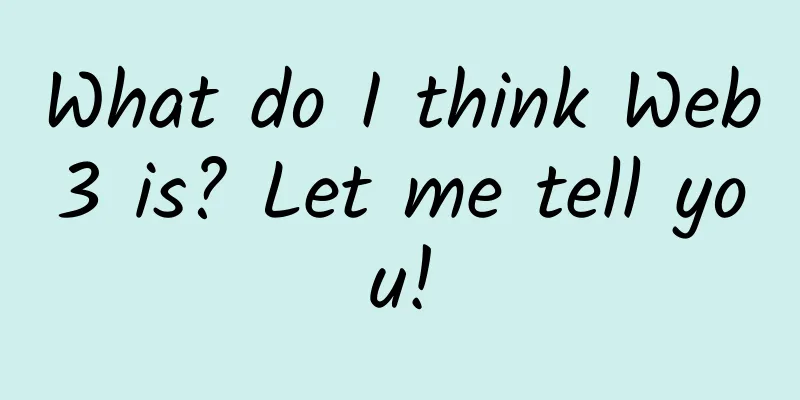
|
When it comes to web3, many people think it is a scam and a way to cheat people. This is because most articles introducing web3 are inseparable from concepts such as NFT, digital currency, blockchain, Bitcoin, Ethereum, and the metaverse. They are mysterious and out of touch with our lives, and do not solve our pain points. In general, the articles also teach us how to speculate on coins and how to buy and sell NFTs at the end, which is a complete way to cheat people, so most people think that web3 is just a scam. To be honest, I think a lot of things are just hype and I don’t believe them. A picture sold for millions of dollars? A virtual coin is sold to me for money? Metaverse? Maybe I have to wait until my son grows up to play with it? As for what web3 is, each article may introduce it differently, and it seems that people have not yet reached a consensus on what web3 is. But for ordinary people, we only care about whether web3 can solve my pain points and bring me value. In this article, I will introduce the web3 form that I recognize in plain language, which greatly solves our pain points. I would like to call it the future! This article will not involve any concepts related to leeks coins (I don’t understand them either), so please feel free to read it. The web2 cage (current pain point)Usually, web1 refers to the portal era, where content is created by major portals and ordinary users are just browsers. Data is produced by portals, and the revenue belongs to them, so the value flows in the right direction. In summary: platforms create, platforms own, platforms control, and platforms benefit. What people usually call web2 is our current form of Internet: user-created, platform-owned, platform-controlled, and platform-distributed. Here are some typical examples:
There are many problems with web2:
Major content platforms use algorithms to control the content recommended to users . The Baidu search homepage is full of paid ads . The platform is fragmented, WeChat blocks Alipay, Taobao, and Douyin sharing, Taobao does not support WeChat payment , etc. E-commerce platforms take advantage of old customers . The content posted in Moments is blocked and only visible to yourself .
Every time I write an article, I need to publish it once on WeChat, Nuggets, Zhihu, Github , etc. Everyone's comments, likes, and attention to the article are separate and belong to each platform, not to my article . I can’t stand WeChat’s monopoly, but I also have no way to migrate my WeChat friends, chat records, Moments and other content I created to other platforms . I can't transfer my Zhihu fans, articles, comments, and followers to Nuggets . The music I purchased on QQ Music cannot be played on NetEase Cloud Music Player .
The number of views on my articles may be fake . The purchase quantities of goods may be false . Recommended popular videos may not actually be popular .
Personally, I have reached the point where I can no longer tolerate many points in web2. If web3 can solve these problems, then I will be a fan of web3. Freedom and developmentBased on the market economy, the purpose of web3 must be user-created, user-owned, user-controlled, and protocol-distributed. In web3, all user data belongs to the user, and the user can authorize other platforms to access certain types of their data. Imagine this scenario:
In summary, if any software makes me unhappy, I will seamlessly switch to another software and let the software vendors fight for their own interests. I feel happy just thinking about being able to fire WeChat employees at will. This was not possible before, but web3 does bring this opportunity. I think the implementation idea of web3 should be as follows:
For the technical solution of data storage, we require that the trust problem can be solved. That is, users fully trust the data storage party, and no one can access or modify the data without the user's authorization. Centralized data storage certainly cannot meet the requirements. From the current perspective, "blockchain" decentralized technology is very suitable to serve as a trusted data storage solution here. This is why web3 is always tied to blockchain. In fact, if there are other technologies that can solve the trust problem, it is OK. For software providers, the future may be even lighter. For example, many software may not need a database, and the data is completely brought by the user. All the software needs to do is help users manage data, such as playing music, managing articles, chatting, etc. Software providers must attract users with high-quality experience, which is a happy thought. SummarizeWhere there is oppression, there is revolution. Web3 allows us to fully control our own data and use better software. Users will vote with their feet, so why can't it succeed? So I am still determined to go in the direction of web3. Although this road is really difficult and requires countless people to explore, the future of the Internet must belong to web3! |
<<: F5: Building an architecture with full data path protection to protect enterprise applications
>>: Apple's in-house modem solution is a huge challenge, but the rewards are huge if it succeeds
Recommend
Airplanes are all equipped with 5G, so why is the signal on high-speed trains still so poor?
[[403928]] This article is reprinted from the WeC...
iWebFusion: US servers start at $49/month, 10Gbps bandwidth servers start at $149/month, Los Angeles 4G memory VPS monthly payment starts at $9.38
iWebFusion is a foreign hosting company founded i...
From trials to use cases, the big 5G stories of 2017
In 2017, 5G gradually moved from the laboratory t...
Are you ready for network automation?
[[374510]] This article is reprinted from the WeC...
What magical things happen when you enter a URL in your browser?
After entering the URL in the browser, the websit...
Network monitoring tool! Don't miss these 7 free open source tools
Editor's note: In the real estate market, the...
Huawei promises to provide public cloud services in the long term and is committed to building the "Five Clouds"
HUAWEI CONNECT 2017 opened today at the Shanghai ...
AT&T provides sub-6GHz 5G emergency safety access in 10 cities
[[418156]] AT&T said Monday that first respon...
spinservers New Year promotion: 10Gbps San Jose/Dallas high-end servers starting from $89/month, instant activation and support for Alipay/WeChat
spinservers has released a promotional coupon cod...
The New Year season is coming and the hidden power of routers is unlocked
Wireless routers have entered thousands of househ...
What kind of sparks will be created when the hottest blockchain meets the most popular sharing economy?
Where does the “mutual trust” of the sharing econ...
5G accelerates cloud-network integration
What is cloud computing? Different companies have...
The 5G commercial license has just been officially issued! Here are ten issues that you should pay attention to
On the morning of June 6, the Ministry of Industr...
Talk about TCP's three-way handshake and four-way wave
[[379162]] 1. Introduction to Transmission Contro...
What is the difference between a wireless AP and a wireless router? Why is a wireless AP more expensive than a wireless router?
When many friends are doing network coverage, the...

